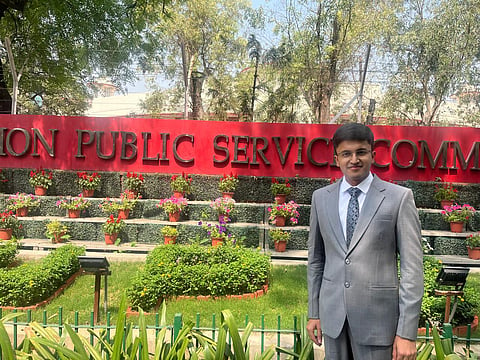

Born in Ludhiana and raised in Delhi, Dr Pulkit’s early years were full of academic curiosity. Taking up Physics, Chemistry, Mathematics, and Biology (PCMB) was a reflection of his wide-ranging interests. That curiosity eventually led him to the All India Institute Of Medical Sciences (AIIMS) Delhi, one of the country’s most competitive and prestigious medical colleges.
Life at AIIMS gave him more than just lectures and clinical postings. He excelled at academics and co-founded the MedQuiz Society with friends who shared his love for questions.
Between Holi celebrations in the hostel courtyard and late night conversations that stretched far beyond medicine, he carved out a life full of vibrant campus memories.
But even amidst the demanding routine of ward duties and case presentations, there was a question that lingered quietly in the background: Was this enough?
That question grew louder during his internship’s rural posting. A 24-hour shift, a patient’s quiet helplessness. It wasn’t the diagnosis that unsettled him, rather the feeling that even if the patient’s illness was treated, could he fix what the patient was returning to? That moment became a pivot towards something larger. Towards systems, policies and equity.
The civil services, once a distant thought, now offered a tangible way to reach people before they ever became patients. It offered a way to work upstream, to influence the very policies and structures that shape how and whether someone receives care at all.
Preparing for the Union Public Service Commission (UPSC) was not about proving anything. He didn’t measure his success in mock test ranks or cut-offs, but in consistency. When the results came, an AIR 155 felt less like a finish line and more like a doorway into a broader kind of service.
Today, Dr Pulkit Bansal stands at the intersection of two worlds: clinical and governance, guided by a belief that compassion belongs in both. Where once he treated symptoms, now he hopes to treat systems.
To those unsure about their own direction, he offers a quiet reminder: not every path is straight, and not every detour is a mistake. Because sometimes, it’s the unexpected turn that takes you exactly where you are meant to be.
(This article was curated by the content and digital team at Humans of Medicare: Siddhant Kashyap, Varuni Vats, Sudesh Digulkar and Nishtha Arya.)
